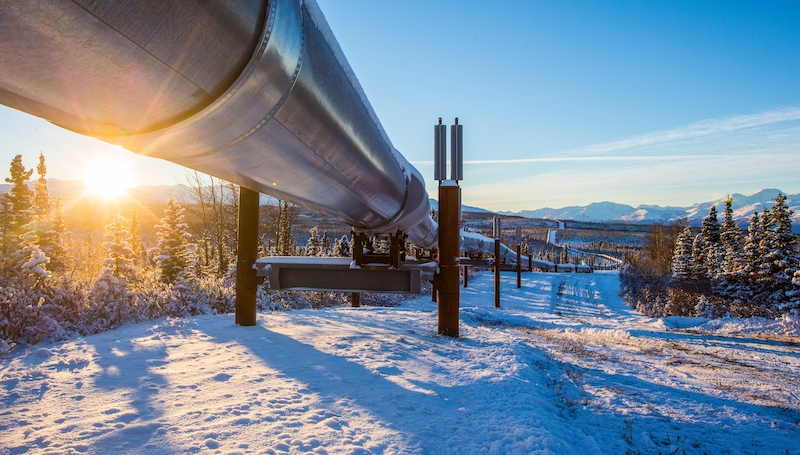(Bloomberg) – Thailand said it’s interested in co-developing a massive gas pipeline project in Alaska backed by President Donald Trump, as the Southeast Asian nation explores ways to cut its $46 billion trade surplus with the U.S. before tariff talks.

Thai officials discussed Bangkok’s potential involvement in the $44 billion Alaska venture — a long-delayed pipeline that will stretch across the state — through investments in gas exploration and production and related infrastructure with project officials, the Ministry of Energy said in a statement on Thursday.
Thailand is also open to signing a long-term contract to import about 3 to 5 million tons of liquefied natural gas from Alaska annually, the ministry added. Trump’s backing for the project has seen Asian LNG buyers like Japan, South Korea and Taiwan express interest in joining forces with the U.S. developers.
The Thai interest in the Alaska venture is seen as part of efforts to ramp up investments in the U.S. to ward off the Trump administration’s plan to impose a steep 36% tariff on the country’s exports. Bangkok, which is preparing to start negotiations with Washington, has identified natural gas, petrochemical feedstock and farm commodities as U.S. products that it will import more in order to help cut the trade gap.
A stake in the Alaska project will also help net energy importer Thailand to lock in guaranteed supplies amid depleting gas reserves in the Gulf of Thailand. The decline in local output has pushed the country to increase LNG imports in recent years.
Last year, natural gas accounted for 58% of Thailand’s power generation mix. Domestic output only made up about 60% of the 4,500 million standard cubic feet per day that Thailand needed, with the rest being sourced through LNG imports and supplies from gas fields in Myanmar.
Viable Option
With electric vehicles taking off and investments in artificial intelligence and power-hungry data centers likely to boost electricity demand, the Alaska project may be a “viable future option” for affordable electricity, said Prasert Sinsukprasert, permanent-secretary at the Energy Ministry, who led a delegation to Alaska earlier this week.
The delegation discussed LNG trade and investment opportunities with Alaska Governor Mike Dunleavy and executives from state-run Alaska Gasline Development Corp. and Glenfarne Group, which back the project.
The Thai team also included executives of state-controlled energy firm PTT Pcl, the Electricity Generating Authority of Thailand and Electricity Generating Pcl — all licensed LNG shippers in Thailand. The companies have been instructed to further discuss with their US counterparts on potential import deals, the ministry said.
Still, the Alaskan project faces massive hurdles, and hasn’t yet secured any binding investments or purchase agreements despite some interest from governments in Asia that are looking for ways to head off Trump’s threatened tariffs. The project has been proposed in various forms for decades. Unlike similar facilities on the U.S. Gulf Coast, it would be massive in scale, requiring the construction of a pipeline stretching 800 miles (1,287 kilometers).
Governor Dunleavy has said that Trump’s support for the project will ensure it gets completed.

